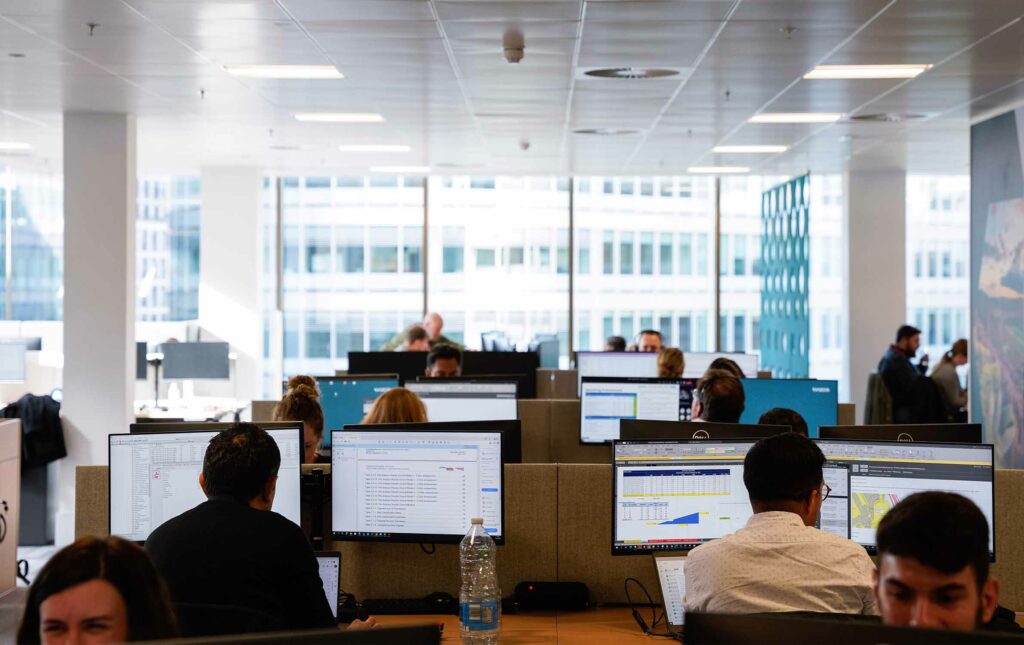Amy Sykes is the Director of Business Cases at SYSTRA UK & Ireland. She leads a specialist team that has developed compelling business cases for new transport infrastructure, public transport network improvements and extensions, behaviour change programmes and technology projects. In the third in our series of articles on transport planning, Amy outlines the keys to developing a successful business case.
The Department for Transport has clearly signalled a move away from funding via competition. In parallel, devolution of funding to combined authorities is spreading to new areas. This evolution in the approach to funding of transport infrastructure, including the ability to move money between sectors, increases the importance of developing a robust business case to support funding decisions.
My team’s experience of building and assuring business cases at every level has shown that the process of developing a business case, rather than being viewed as a hurdle to jump, can lead to significant improvement in the scheme proposed for delivery.
The cornerstone to that approach is evidence. Not just of current travel patterns and usage, but defendable data to showcase and justify projected future outcomes and impacts. Data and appraisal must be up-to-date, reliable, pertinent to broader regional and local strategic priorities and weighted proportionately to the requirements of the specific funder and funding model. This last point on proportionality, may be the most common pitfall for the author of a transport business case. That’s because funding providers have widely different evidential needs and expectations and what may be appropriate and proportionate at one stage of a project proposal may well be inadequate further down the line. It is not easy to get it right without the depth of experience that comes from regular dealings at every level of the business case process: with central government and with devolved authorities.
Today, one significant part of the evidential case is carbon. How much carbon will the scheme cost across the whole life of the project? Decarbonisation is now an explicit priority across government at all levels, so getting this right is essential. Of course, it can be far from easy to understand how to audit carbon in real-world situations, but the tools and the people who know how to use them, and a clear, thought-through and evidenced position on ‘whole-life carbon’ will carry a business case a long way towards the finishing line.

However, none of that matters if you cannot persuade funders that the project can be delivered, that the proposal is realistic about the constraints and risks affecting delivery and is rigorous in its analysis of how these can be managed. That’s when a ‘critical friend’ is most important. Their role is to act as an independent voice that can challenge management assumptions and overly optimistic thinking – they can ask all the hard questions while supporting the project overall. They can make the difference between a business case that stands up and one that doesn’t.
Transport can be transformative, economically, environmentally, and socially. We should think of it as an investment in a preferred future world, rather than a cost. The move away from funding competitions with short delivery windows offers us the opportunity to put that way of thinking into practice – in many places, for the first time in years. At SYSTRA, we can help you make the case.
SYSTRA is offering a free facilitated workshop session to help any local authority understand what they need to do to develop their next transport strategy, irrespective of where they are in the process. To discuss this, please get in touch with Darren Kirkman at [email protected].
You May Also LIKE

- services
Transport Planning
Read more sur Transport Planning
- services
Transport Business Cases
Read more sur Transport Business Cases
- services


 Australia
Australia  Brazil
Brazil  Canada
Canada  Chile
Chile  China
China  Columbia
Columbia  Denmark
Denmark  Egypt
Egypt  France
France  India
India  Indonesia
Indonesia  Ireland
Ireland  Italy
Italy  Malaysia
Malaysia  New Zealand
New Zealand  Norway
Norway  Panama
Panama  Peru
Peru  Poland
Poland  Portugal
Portugal  Saudi Arabia
Saudi Arabia  Singapore
Singapore  South Korea
South Korea  Spain
Spain  Sweden
Sweden  Taiwan
Taiwan  Thailand
Thailand  Türkiye
Türkiye  United States
United States  Vietnam
Vietnam